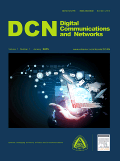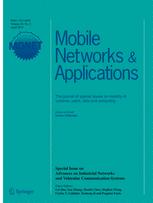
Keynote Speaker
Michael J. Marcus
IEEE Fellow
Marcus Spectrum Solutions LLC, USA
Title
Technology and Policy for Millimeterwave 5G and Backhaul
Abstract
As recently as the early 1980s it was generally thought that mobile radio systems above 1 GHz were not practical. With rapidly escalating demand for mobile radio capacity to serve new applications such as smartphones and new wireless technologies, there is now interest in possible mobile wireless systems up to 100 GHz. Such millimeterwave (mmW) system could provide much higher speed and lower latencies than lower bands due to spectrum bandwidths that are significantly greater. These high speed mobile systems will also require large capacity backhaul systems to interconnect base stations. While optical fiber systems are generally cost-effective for such uses based on hardware costs, in urban areas where installed fiber is not available installation costs of fiber can dwarf material costs. Fortunately, the same basic mmW technology can also be used for backhaul and other Fixed Service applications. A key question is how readily spectrum can be shared between mobile and fixed stations in the same area. The small wavelengths at mmW bands allow modest size antennas with small beamwidths to isolate nearby mobile and fixed use and other isolation techniques may also be possible. Much of today’s national and international policy concepts for spectrum regulation date to the Titanic sinking in 1912. The mmW bands have technical characteristics very different than both the bands in use then and most of the bands in use now. Thus some generally accepted traditional concepts of spectrum policy may have to be revalidated or reconsidered for the mmW case in order to use this new spectrum resource productively for all possible users, including both active systems and passive systems.
Short Biography
Michael Marcus is a native of Boston and received S.B. and Sc.D. degrees in electrical engineering from MIT. Prior to joining the FCC in 1979, he worked at Bell Labs on the theory of telephone switching, served in the U.S. Air Force where he was involved in underground nuclear test detection research, and analyzed electronic warfare issues at the Institute for Defense Analyses.
At FCC his work focused on proposing and developing policies for cutting edge radio technologies such as spread spectrum/CDMA and millimeterwaves. Wi-Fi is one outcome of his early leadership. The total amount of spectrum he proposed for unlicensed use and directed the drafting of implementing rules was 8.234 GHz. He also participated in complex spectrum sharing policy formulation involving rulemakings such as ultrawideband and MVDDS. Awarded a Mike Mansfield Fellowship in 1997, he studied the Japanese language and spent at year at the FCC’s Japanese counterpart.
He retired from FCC in March 2004 after servicing a senior technical advisor to the Spectrum Policy Task Force and codirecting the preparation of the FCC’s cognitive radio rulemaking. Immediately after retirement he lived in Paris France for 3 years, consulting for US and European clients. In 2006 he was appointed Special Advisor to Mrs. Viviane Reding, European Commissioner for Information Society & Media.
He is now Director of Marcus Spectrum Solutions LLC, an independent consulting firm based in the Washington DC area and focusing on wireless technology and policy. He is also Adjunct Professor of Electrical and Computer Engineering at Virginia Tech and the 2011-2013 chair of the IEEE-USA Committee on Communications Policy. He was recognized as a Fellow of the IEEE “for leadership in the development of spectrum management policies”, received in 1994 IEEE-USA’s first Electrotechnology Transfer Award , and received in 2013 the IEEE ComSoc Award for Public Service in the Field of Telecommunications "For pioneering spectrum policy initiatives that created modern unlicensed spectrum bands for applications that have changed our world."

Keynote Speaker
Yuguang “Michael” Fang
IEEE Fellow
Department of Electrical and Computer Engineering University of Florida, USA
Title
Cognitive Radio Networks: Design Challenges and Potential Solutions
Abstract
Exponential growth in mobile data traffic due to extensive uses of smartphones and tablets has created tremendous traffic burden on existing telecommunications infrastructure. Although significant efforts have already been made on spectrum efficiency by developing various innovative transmission technologies, hurdles cannot be jump over easily due to the physical transmission constraints. Cognitive radio technology is envisioned to unleash under-utilized licensed spectra and opportunistically utilize them to support communications services without affecting the incumbent spectrum users. Unfortunately, most research focuses on either cognitive radio design or spectrum sensing mostly for one-hop communications, which cannot address end-to-end services effectively. In this talk, the speaker will discuss design challenges in cognitive radio networks and then present a network solution for effective spectrum harvesting and optimization, leading to a collaborative design approach. This design not only enables network operators to tap unused (licensed/unlicensed) bands opportunistically and effectively, but also offers other optional strategies for significant network performance gain.
Short Biography
Yuguang "Michael" Fang (F'08) received an MS degree from Qufu Normal University, Shandong, China in 1987, a Ph.D degree from Case Western Reserve University in 1994 and a Ph.D. degree from Boston University in 1997. He was an assistant professor in Department of Electrical and Computer Engineering at New Jersey Institute of Technology from 1998 to 2000. He then joined the Department of Electrical and Computer Engineering at University of Florida in 2000 and has been a full professor since 2005. He held a University of Florida Research Foundation (UFRF) Professorship from 2006 to 2009, a Changjiang Scholar Chair Professorship with Xidian University, China, from 2008 to 2011, and a Guest Chair Professorship with Tsinghua University, China, from 2009 to 2012.
Dr. Fang received the US National Science Foundation Career Award in 2001 and the Office of Naval Research Young Investigator Award in 2002, IEEE Communications Society WTC Recognition Award in 2014, and the Best Paper Award from IEEE ICNP (2006). He has also received a 2010-2011 UF Doctoral Dissertation Advisor/Mentoring Award, 2011 Florida Blue Key/UF Homecoming Distinguished Faculty Award, and the 2009 UF College of Engineering Faculty Mentoring Award. He is the Editor-in-Chief of IEEE Transactions on Vehicular Technology, was the Editor-in-Chief of IEEE Wireless Communications (2009-2012), and serves/served on several editorial boards of journals including IEEE Transactions on Mobile Computing (2003-2008, 2011-present), IEEE Transactions on Communications (2000-2011), and IEEE Transactions on Wireless Communications (2002-2009). He has been actively participating in conference organizations such as serving as the Technical Program Co-Chair for IEEE INOFOCOM’2014 and the Technical Program Vice-Chair for IEEE INFOCOM'2005. He is a fellow of the IEEE.

Keynote Speaker
Wei Zhang
IEEE Fellow
The University of New South Wales, Sydney, Australia
Title
Towards Harmonization: Interference Coordination inHeterogeneous Cellular Networks
Abstract
With the rapid growth in use of wireless devices such as smart phones, laptops, and tablets, the population of mobile users using the wireless cellular infrastructure for Internet connectivity are increasing dramatically. The traditional homogeneous network with cell splitting cannot accommodate the rapid growth of user population and the associated big data. The architecture of cellular networks is now entering a new phase where the dense deployment of access points can effectively increase the spatial reuse of scarce radio resources to accommodate the exponentially growing mobile data traffic. Heterogeneous cellular network is a new wireless communications paradigm that advocates base station “densification” and promotes “multi-tier cells” concept that allows heterogeneous wireless networks, e.g., macro-cells and micro-cells, to co-exist in the same geographic area and share licensed frequency band with unlicensed users. Whilst heterogeneous network users could be served simultaneously, interference and spectrum congestion due to the network co-existence may severely limit the potential benefits and use of the new communications paradigm. This talk will present research advances in interference coordination techniques for future generation cellular networks. Along with an overview of interference management techniques, this talk will focus on the design of practical interference coordination schemes based on beamforming and user scheduling. The proposed schemes aim to deal with the inter-cell interference in multi-cell MIMO networks, inter-tier interference in device-to-device (D2D) communications underlaying cellular network, and inter-system interference in cognitive radio networks. The performances of the proposed schemes are evaluated both analytically and numerically in terms of sum rate, multiplexing gain, and outage probability of the networks. The results show that the proposed schemes can significantly reduce the effect of interference and improve the overall capacity of the future generation cellular networks.
Short Biography
Wei Zhang (S’01-M’06-SM’11-F’15) received the PhD degree in Electronic Engineering from the Chinese University of Hong Kong in 2005. He was a Research Fellow at Department of Electronic and Computer Engineering, Hong Kong University of Science and Technology in 2006-2007. Since 2008, he has been with the School of Electrical Engineering and Telecommunications, University of New South Wales, Sydney, Australia, where he is currentlyan Associate Professor. His current research interests include cognitive radio, energy harvesting communications, interference alignment, space-time coding, and massive MIMO. He has published over 130 papers in IEEE transactions and conferences. He holds 5 US patents. He co-authored two books with his former PhD students, entitled “Opportunistic Spectrum Sharing in Cognitive Radio Networks” (Z. Wang and W. Zhang, Springer, March 2015) and “Interference Coordination for 5G Cellular Networks” (L. Yang and W. Zhang, Springer, Dec. 2015, to appear).
He is an Editor for IEEE Transactions on Wireless Communications, an Editor for IEEE Transactions on Communications, and an Editor for IEEE Transactions on Cognitive Communications and Networking. He was an Editor of IEEE Journal on Selected Areas in Communications - Cognitive Radio Series in 2012-2014. He served as a TPC Co-Chair of Communications Theory Symposium of IEEE ICC 2011, a TPC Co-Chair of Wireless Communications Symposium of IEEE ICCCAS 2009, a TPC Co-Chair of Wireless Communications Systems Symposium of IEEE ICCC 2013, the TPC Chair of Signal Processing for Cognitive Radios and Networks Symposium of IEEE GlobalSIP 2014, and a TPC Co-Chair of Wireless Communications Symposium ofICNC2016. He is in the organizing committee of IEEE ICASSP 2016(Shanghai, China), serving as the Chair of Student Career Session. He served as a Guest Editor of Journal of Communications special issue on ''Cognitive Radio Enabled Communications and Networking'' in 2009 and a Guest Editor of Journal of Communications special issue on ''Coding and Modulation for Cooperative Communications'' in 2010. He served as the Founding Deputy Editor-in-Chief of EAI Transactions on Wireless Spectrum in 2013-2014. He is a Guest Editor of Elsevier Physical Communication Special Issue on Massive MIMO Systems in 2015. He has served as TPC member of many conferences including ICC, GLOBECOM, WCNC, DySPAN, VTC, ITW, etc.
He received three best paper awardsat international conferences (Globecom2007, WCSP2011, GlobalSIP2014). He is the recipientof the 2009 IEEE Communications Society Asia-Pacific Outstanding Young Researcher Award. He serves asthe SecretaryofIEEEWireless Communications Technical Committee. He is a member of IEEE Communication Society Asia Pacific Board. He is an IEEE Fellow.

Keynote Speaker
Ying-Chang Liang
IEEE Fellow
Principal Scientist, Institute for Infocomm Research, Singapore
Title
Advanced Spectrum Sharing for 5G and Future Cellular Networks
Abstract
The 5G and future cellular networks are expected to support the explosive growth of mobile data for various types of services. Besides increasing the spectral efficiency and exploring unused spectrum, the need for spectrum sharing to support the deployment of various networks becomes unavoidable. Over the past decade, there have been a lot of research and development activities devoted to the spectrum sharing research. In this talk, I will highlight the key cognitive radio ideas and technologies that could contribute to the development of 5G and future cellular networks, including, e.g., spectrum refarming, LTE-U, D2D communications, and software-defined wireless network access.
Short Biography
Dr Ying-Chang Liang is a Principal Scientist in the Institute for Infocomm Research (I2R), Agency for Science, Technology & Research (A*STAR), Singapore. He was a visiting scholar in the Department of Electrical Engineering, Stanford University, CA, USA, from Dec 2002 to Dec 2003, and was an adjunct staff in National University of Singapore and Nanyang Technological University from 2004 – 2009. His research interest spans the area of communications and signal processing, with emphasis on dynamic spectrum access, cognitive radio, space-time wireless communications, cooperative communications, broadband wireless networks, and statistical signal processing.
Dr Liang was elected as a Fellow of the IEEE in December 2010 for contributions to cognitive radio communications, and was recognized by Thomson Reuters as a Highly Cited Researcher in 2014. He received the Institute of Engineers Singapore (IES)’s Prestigious Engineering Achievement Award in 2007, and the IEEE Standards Association’s Outstanding Contribution Appreciation Award in 2011, for his contributions to the development of IEEE 802.22 standard. He has also received six Best Paper Awards, including IEEE Jack Neubauer Memorial Award in 2014, the First IEEE Communications Society APB Outstanding Paper Award in 2012, and the EURASIP Journal of Wireless Communications and Networking Best Paper Award in 2010.
Dr Liang is now an Editor of IEEE Signal Processing Magazine and IEEE Transactions on Signal and Information Processing over Networks. He served as Editor-in-Chief of IEEE Journal on Selected Areas in Communications – Cognitive Radio Series, and is the key founder of new journal IEEE Transactions on Cognitive Communications and Networking. He was an Editor of IEEE Transactions on Wireless Communications from 2002 to 2005, and an Associate Editor of IEEE Transactions on Vehicular Technology from 2008 to 2012, and had served as a Guest Editor of five special issues on emerging topics published in IEEE, EURASIP and Elsevier journals. Dr Liang is currently a Distinguished Lecturer of the IEEE Communications Society and the IEEE Vehicular Technology Society, and has been a member of the Board of Governors of the IEEE Asia-Pacific Wireless Communications Symposium since 2009.












































